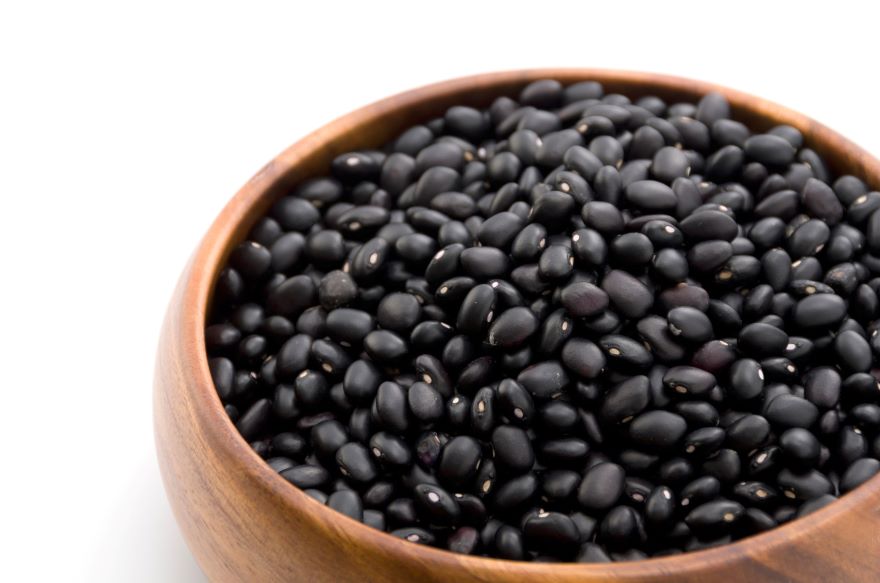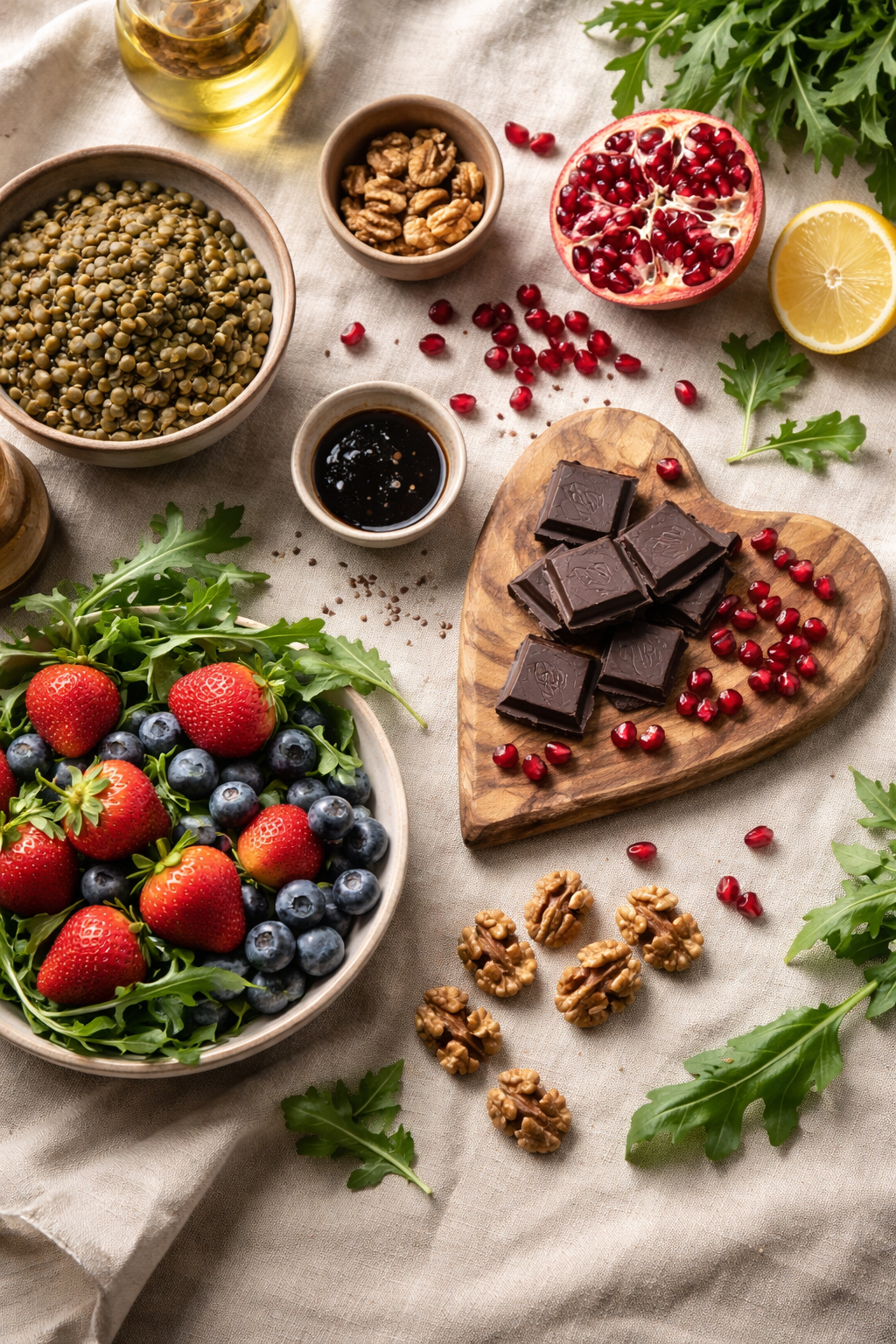When I was younger I thought black beans and chipotle black beans were the same thing. I was wrong! It wasn’t until much later that I discovered it’s actually the seasoning and flavor profile that makes them different. I remember trying to explain this “revelation” to my husband, Bruce, one evening while cooking dinner. He just looked at me with that familiar smile and said, “Yes, I know that.” Talk about feeling late to the party!
Some of you might know from my previous articles that my youngest son, James, was diagnosed with celiac disease as a baby. It completely changed how our family approaches food. I don’t usually share too many personal details about that difficult time, but I will say that my passion for gluten-free cooking isn’t just professional—it’s deeply personal. So when readers ask me “Are Black Beans Gluten-Free?” I completely understand their concern and confusion. Let’s sort through the facts together.
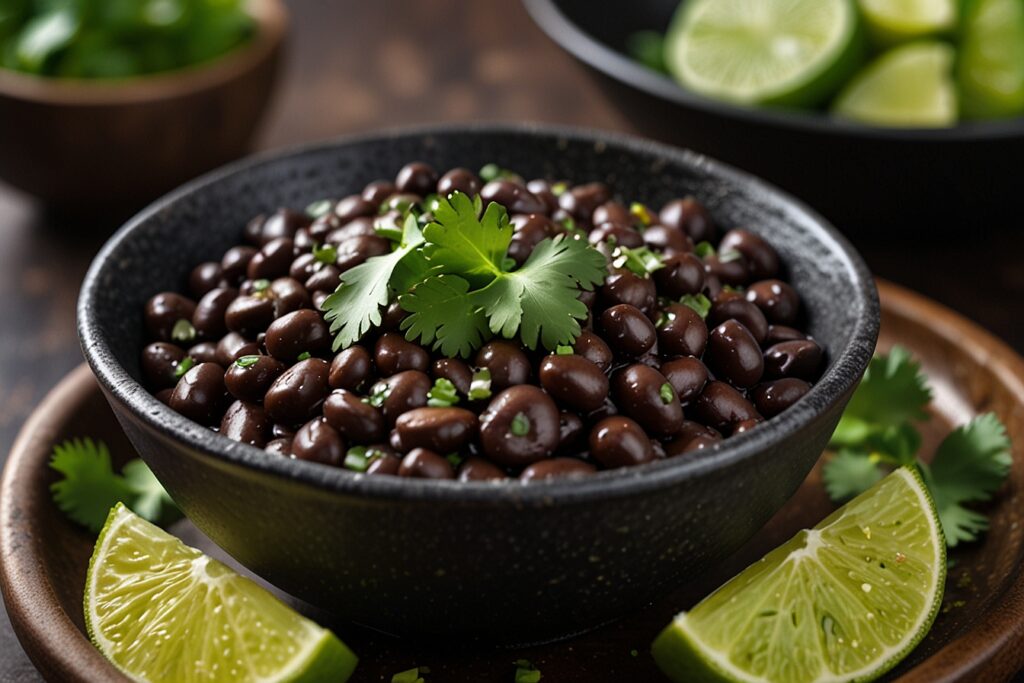
Understanding Gluten and Its Health Effects
Let’s get real about gluten for a minute. It’s that stretchy protein found in wheat, barley, and rye that gives bread its chewy texture and helps pizza dough stretch into that perfect circle. For most people, it’s completely harmless. But for others—like my son—it’s practically poison.
When someone with celiac disease eats even a tiny amount of gluten, their immune system essentially attacks their own small intestine. The damage prevents proper nutrient absorption, leading to all sorts of health problems. Those with non-celiac gluten sensitivity don’t have the intestinal damage, but they still suffer with similar symptoms—stomach pain, bloating, headaches, fatigue, and sometimes a mental “fog” that’s hard to shake.
Going gluten-free means more than just skipping the obvious bread and pasta. Gluten loves to hide in everything from soy sauce to salad dressings and even some medications. For families dealing with celiac disease, reading every single label becomes second nature. We’ve all accidentally consumed gluten at least once.
Are Black Beans Gluten-Free? The Reassuring Answer
Good news! Black beans, just like all other plain legumes, are naturally gluten-free. They don’t contain any wheat, barley, or rye proteins, which means they’re completely safe for people with celiac disease or gluten sensitivity. This makes them a fantastic staple for gluten-free cooking.
But black beans aren’t just “safe”—they’re nutritional champions. Half a cup of these little powerhouses contains about 7.5 grams of protein and the same amount of fiber. They’re loaded with folate (great for cell growth), magnesium (helps with muscle function), thiamine (converts food to energy), and iron (carries oxygen in your blood).
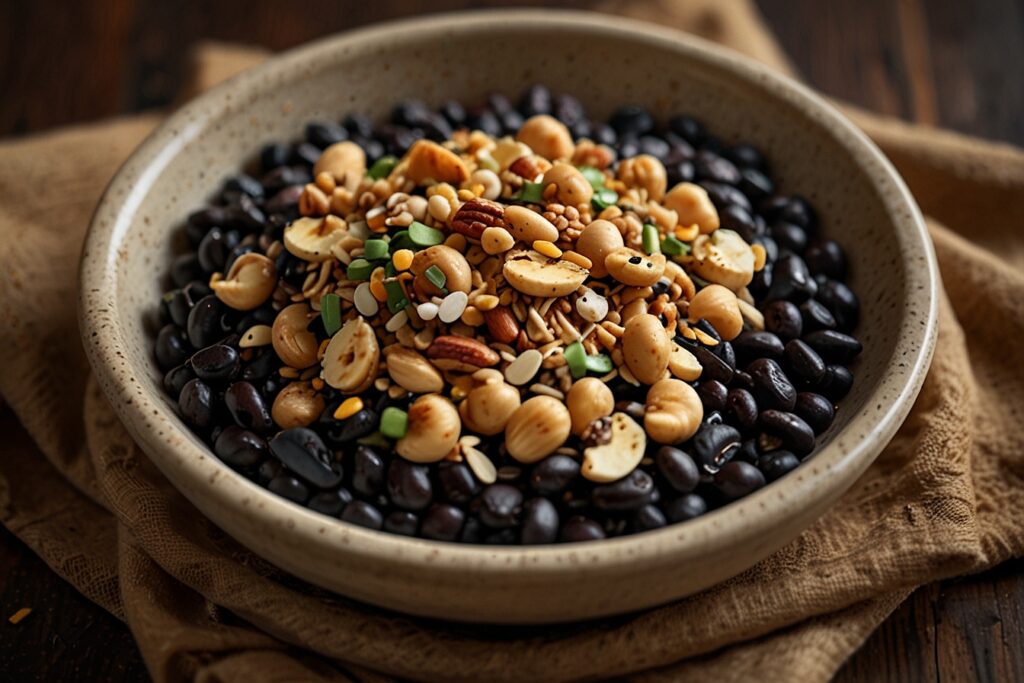
The antioxidants in black beans help fight inflammation and oxidative stress in the body. And bonus—they have a low glycemic index, meaning they won’t spike your blood sugar like some other foods might. This makes them perfect for managing diabetes alongside gluten issues.
What I love most about black beans is their versatility. Their slightly earthy, almost umami flavor works in everything from Mexican dishes to Mediterranean-inspired meals. When we had to overhaul our family’s diet after James’s diagnosis, black beans quickly became one of our go-to proteins.
Preventing Cross-Contamination
Here’s where things get a bit tricky. While black beans themselves don’t contain gluten, cross-contamination is a real concern. The first time making a big pot of black bean soup, many people haven’t yet learned about the sneaky ways gluten can find its way into naturally gluten-free foods.
Cross-contamination can happen at almost any stage from farm to table. Imagine a farmer using the same equipment to harvest beans and wheat. Or picture a food processing facility where they package gluten-free beans on the same line they just used for barley. Even during shipping and storage, gluten particles can transfer from one product to another.
Watch out for these common gluten-hiding additives in processed bean products:
- Seasoning mixes (sometimes contain wheat as a carrier agent)
- Thickeners in bean soups or ready meals (often wheat flour)
- Stabilizers in canned products (can include modified food starch from wheat)
I learned to read labels like a detective searching for clues. You’d be surprised how often I’ve found wheat lurking in seemingly innocent products.
Choosing Safe Black Bean Products
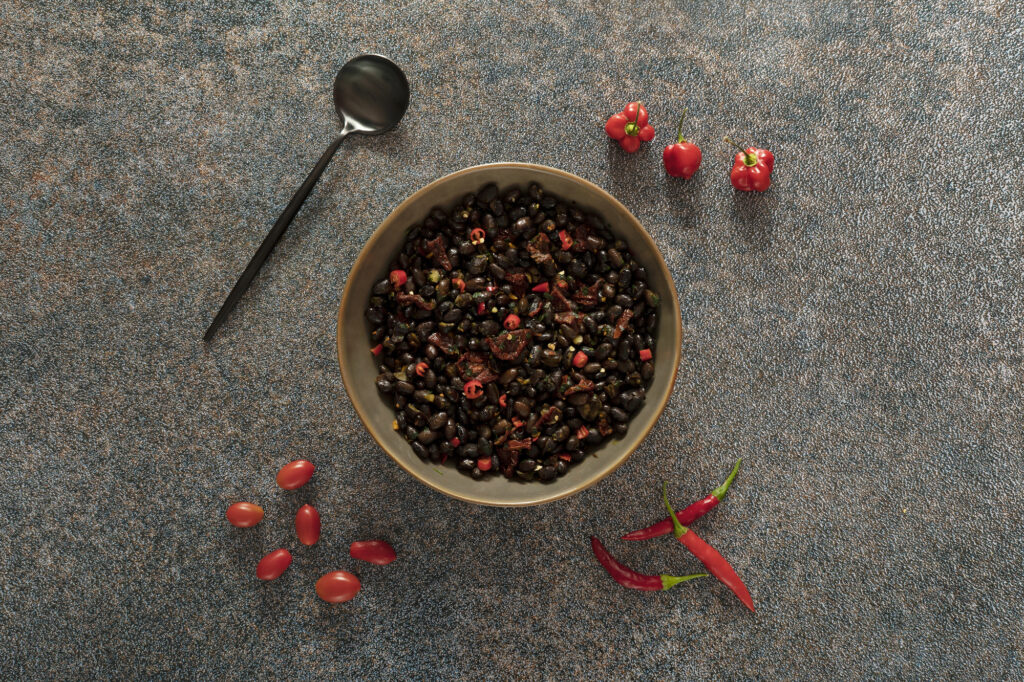
So how do you make sure your black beans are actually gluten-free? Look for packages that explicitly say “gluten-free” or have a certified gluten-free seal. These products have been tested to ensure they contain less than 20 parts per million of gluten—the safety threshold for most people with celiac disease.
After several kitchen mishaps, I’ve learned to stay away from bulk bins at grocery stores. Those shared scoops are cross-contamination magnets! Instead, go for pre-packaged beans from companies that take gluten-free seriously.
Some brands I’ve come to trust over the years include Goya (they have a certified gluten-free line), Eden Foods (they test for gluten), Omena Organics, Nuts.com, and Edison Grainery. These companies understand the needs of the gluten-free community and have protocols in place to prevent cross-contamination.
When checking labels, don’t just look for the gluten-free certification. Flip that package over and scan the ingredient list too. The fewer ingredients, the better. Those plain black beans with just “black beans” listed? They’re usually your safest bet.
Safe Preparation at Home
My kitchen has basically become a gluten-free sanctuary over the years. Here’s how I handle beans to make sure they stay safe from field to fork:
For dry beans: First, I spread them out on a baking sheet and sort through them to remove any debris (or the occasional small stone—yes, that happens!). Then I give them a thorough rinse under cold water. Soaking them overnight not only reduces cooking time but also improves digestibility. If I’m in a hurry, the quick-soak method works too—boil them for a minute, then let them sit for an hour.
For canned beans: Always drain and rinse well. This removes excess sodium and starch, and also washes away any potential contaminants that might be lurking in the liquid.
In our house, cross-contamination prevention is serious business. We have designated cooking tools just for gluten-free prep—separate colanders, cutting boards, wooden spoons, etc. When I’m cooking beans, I’m extra careful about what else goes into the pot. Some spice blends contain wheat as an anti-caking agent, and many broths have hidden gluten. I stick with simple seasonings: herbs, citrus, quality olive oil, and sea salt rarely cause any problems.
One of the best investments I ever made for our gluten-free kitchen was a Le Creuset Dutch Oven. Not only is it gorgeous (hello, dreamy kitchen goals!), but it cooks black beans to perfection—slowly, evenly, and with incredible flavor. Whether you’re simmering soups, making stews, or batch-cooking beans from scratch, this heirloom-quality pot makes it effortless.
I reach for mine almost daily—it’s like having a secret weapon in the kitchen!

Le Creuset Enameled Cast Iron Signature Round Dutch Oven, 5.5 qt., Marseille
- 45-percent larger handles that provide a sure grip, even with oven mitts. Dishwasher Safe, Heat Source: Ceramic Hob, Electric Hob, Gas Hob, Grill, Oven safe, Induction hob
- The superior heat distribution and retention of le creuset enameled cast iron
- An advanced sand-colored interior enamel with even more resistance to wear
- A larger composite knob that withstands temperatures up to 500-degree F
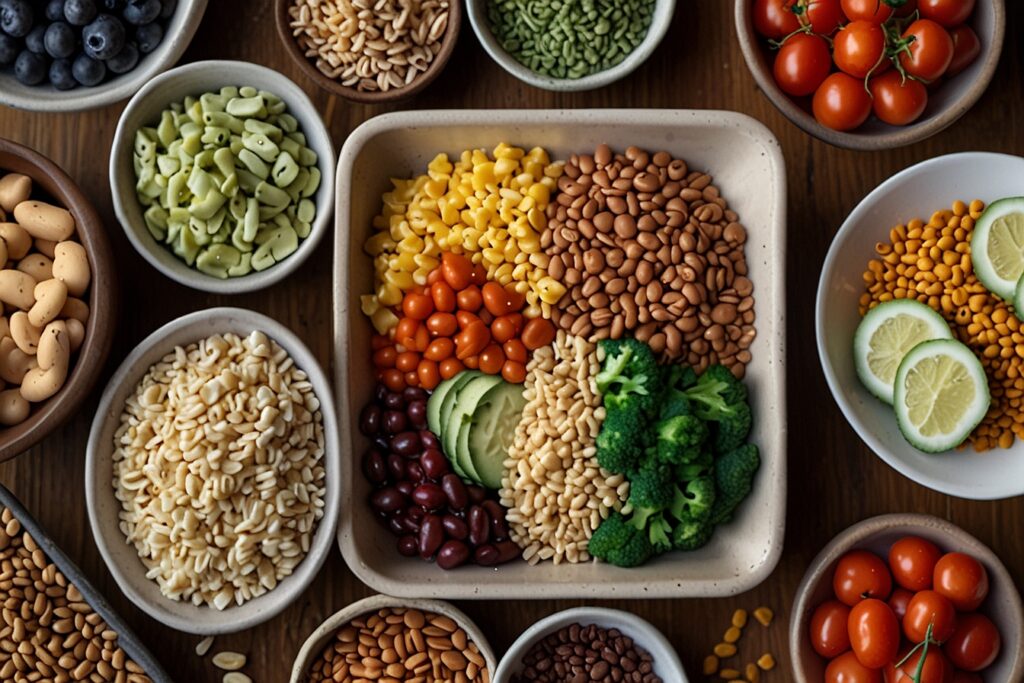
Delicious Ways to Enjoy Black Beans
Black beans have saved my meal planning sanity more times than I can count. They’re like chameleons in the kitchen—they work in practically everything and bring a rich, earthy flavor that’s hard to beat.
On busy weeknights, I’ll throw together a quick salad with black beans, fresh veggies, avocado, and a lime dressing. When the weather cools down, there’s nothing like a pot of spicy black bean soup simmering on the stove. Our family taco nights always include seasoned black beans as a filling option—wrapped in corn tortillas, of course, since flour tortillas contain gluten.
So when people ask, “Are Black Beans Gluten-Free?” I tell them yes—with proper precautions, they’re not just safe but downright delicious.
Here are two black bean recipes that have become staples in our home:
Black Bean and Corn Salad
This refreshing salad makes an excellent lunch or side dish. The combination of beans, corn, and vegetables creates a complete protein profile while remaining entirely gluten-free.
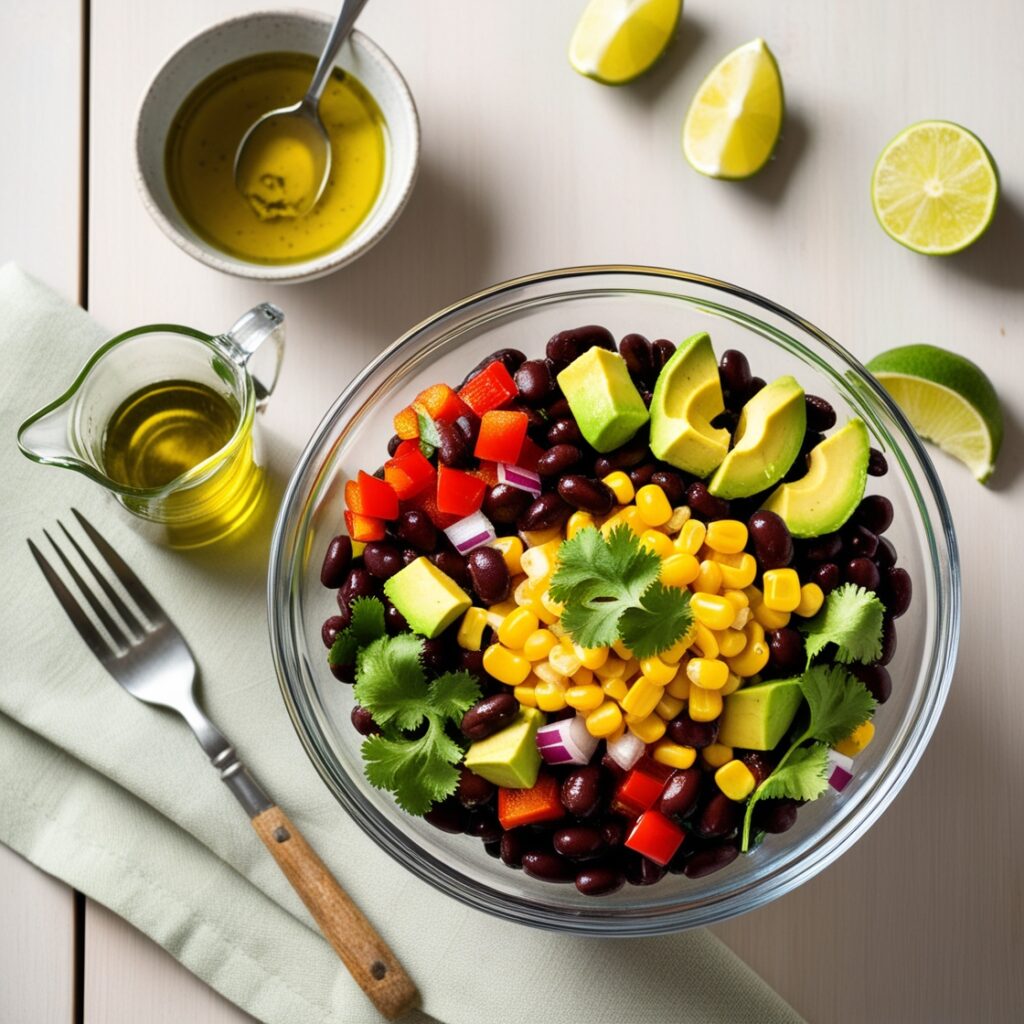
Ingredients:
- 2 cans (15 oz each) black beans, rinsed and drained
- 2 cups fresh or frozen corn kernels (thawed if frozen)
- 1 red bell pepper, diced
- 1/2 red onion, finely chopped
- 1 jalapeño, seeded and minced (optional)
- 1 avocado, diced
- 1/4 cup fresh cilantro, chopped
- 3 tablespoons extra virgin olive oil
- 2 tablespoons fresh lime juice
- 1 teaspoon ground cumin
- 1/2 teaspoon sea salt
- 1/4 teaspoon freshly ground black pepper
Instructions:
- In a large bowl, combine the black beans, corn, bell pepper, red onion, and jalapeño.
- Gently fold in the avocado and cilantro.
- In a small bowl, whisk together the olive oil, lime juice, cumin, salt, and pepper.
- Pour the dressing over the salad and toss gently to combine.
- Refrigerate for at least 30 minutes before serving to allow flavors to meld.
This salad keeps well in the refrigerator for up to three days, making it perfect for meal prep. If preparing in advance, add the avocado just before serving.
Black Bean Brownies
These rich, fudgy brownies are a surprising way to incorporate black beans into your diet. No one will guess they’re made with beans and completely gluten-free!
Ingredients:
- 1 can (15 oz) black beans, rinsed and drained
- 3 large eggs
- 1/3 cup melted coconut oil
- 1/4 cup unsweetened cocoa powder
- 1/8 teaspoon salt
- 2 teaspoons vanilla extract
- 1/2 cup pure maple syrup
- 1/2 cup semi-sweet chocolate chips (certified gluten-free)
- 1/3 cup almond flour
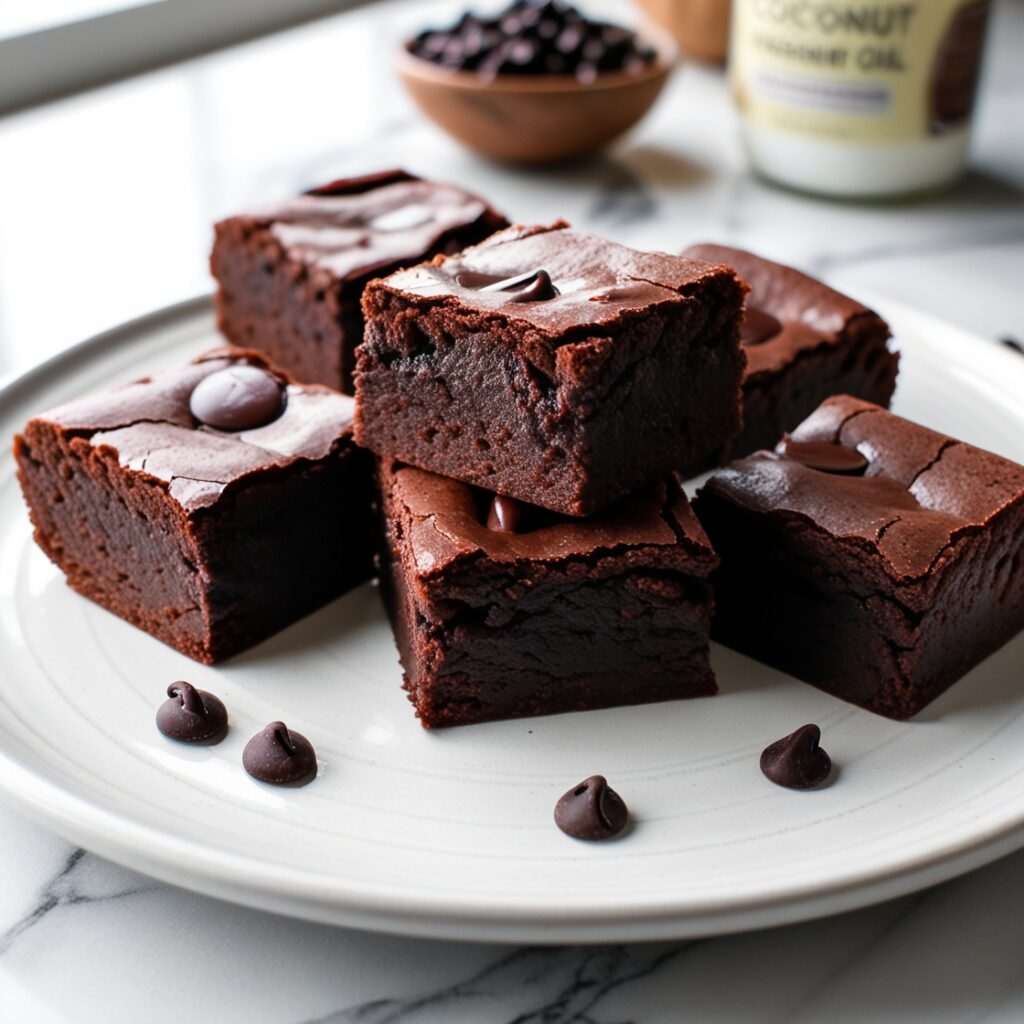
Instructions:
- Preheat oven to 350°F. Line an 8×8-inch baking pan with parchment paper.
- In a food processor, blend the black beans until smooth.
- Add eggs, coconut oil, cocoa powder, salt, vanilla, and maple syrup. Blend until completely smooth.
- Pulse in the almond flour until just combined.
- Stir in most of the chocolate chips by hand, reserving some for topping.
- Pour batter into the prepared pan and smooth the top. Sprinkle with remaining chocolate chips.
- Bake for 25-30 minutes, or until a toothpick inserted in the center comes out mostly clean.
- Allow to cool completely before cutting into squares.
These brownies are best stored in the refrigerator and will keep for up to a week. They’re perfect for satisfying chocolate cravings while getting a boost of fiber and protein from the black beans.
Maximizing Efficiency with the Instant Pot for Perfectly Cooked Black Beans
When it comes to preparing dry black beans, the Instant Pot Duo 7-in-1 Electric Pressure Cooker is a game-changer. It dramatically reduces cooking time, allowing you to prepare perfectly cooked beans in less than half the time it would take with traditional methods. Whether you’re cooking black beans for soups, salads, or tacos, the Instant Pot ensures efficiency while preserving the nutritional value of your ingredients. Plus, its multifunctionality makes it a versatile addition to any kitchen.

Instant Pot Duo 7-in-1 Electric Pressure Cooker, Slow Cooker, Rice Cooker, Steamer, Sauté, Yogurt Maker, Warmer & Sterilizer
- 7-IN-1 FUNCTIONALITY: Pressure cook, slow cook, rice cooker, yogurt maker, steamer, sauté pan and food warmer..Frequency = 60 hz
- QUICK ONE-TOUCH COOKING: 13 customizable Smart Programs for pressure cooking ribs, soups, beans, rice, poultry, yogurt, desserts and more.
- COOK FAST OR SLOW: Pressure cook delicious one-pot meals up to 70% faster than traditional cooking methods or slow cook your favorite traditional recipes – just like grandma used to make.
- QUICK AND EASY CLEAN UP: Finger-print resistant, stainless-steel sides and dishwasher-safe lid, inner pot, and accessories.
Dining Out with Gluten Sensitivity
Eating out with celiac disease can feel like navigating a minefield. Even a dish as simple as black bean soup might not be safe—many restaurants use flour as a thickener or add a splash of soy sauce (which usually contains wheat).
I’ve learned that clear communication is essential. Don’t be shy about asking questions: “How are your black beans prepared?” “Do you use any thickeners in your soups?” “Is there a dedicated fryer for the tortilla chips?” A good restaurant will take your questions seriously and be transparent about their ingredients and preparation methods.
Some places now have gluten-free menus or allergen guides, which is a huge help. There are some amazing apps that help locate gluten-free friendly establishments, making dining out much less stressful.
The Essential Pan for Gluten-Free Cooking
For those who love to cook and get creative with their meals, the Lodge Cast Iron Skillet is a must-have. This versatile pan can be used to sauté, sear, or even bake gluten-free dishes, including black bean burgers. Its even heat distribution ensures perfect cooking every time, while its non-stick surface makes it ideal for sautéing black beans with spices or vegetables. Cast iron skillets also offer the added benefit of being incredibly durable and long-lasting, making them a worthy investment for any gluten-free kitchen.

Lodge 15 Inch Cast Iron Pre-Seasoned Skillet – Signature Teardrop Handle – Use in the Oven, on the Stove, on the Grill, or Over a Campfire
- YOUR NEW GO-TO PAN: Lodge cast iron cookware is the perfect kitchen tool for beginners, home cooks and chefs. Cast iron can handle any kitchen cooktop, oven, grill and open flame. Crafted in America with iron and oil, its naturally seasoned cooking surface creates an easy-release and improves with use.
- SEASONED COOKWARE: Seasoning is simply oil baked into the iron, giving it a natural, easy-release finish and helps prevent your pan from rusting. Lodge pre-seasons all cast iron cookware with 100% natural vegetable oil; no synthetic coatings or chemicals. The more you use Lodge the better the seasoning will get!
- RUST? DON’T PANIC! IT’S NOT BROKEN: When your pan arrives you may notice a spot that looks like rust. It’s simply oil that has not fully carbonized. With regular use and care the spot will disappear. If you do notice rust simply scour the affected area with steel wool, rinse, dry and rub with vegetable oil.
- COOKING VERSATILITY: Our skillets have unparalleled heat retention that gives you edge-to-edge even cooking every time you use your skillet. Cast iron cookware is slow to heat up but retains heat longer which makes cast iron ideal for pan-frying and roasting. These delicious moments are cast to last.
Living Well on a Gluten-Free Diet
Going gluten-free doesn’t mean living a life of culinary deprivation. It’s actually opened my eyes to a world of naturally gluten-free foods I might have overlooked otherwise. Black beans have become a cornerstone of our family meals, providing the nutrition we need and the flavors we crave.
So, “Are Black Beans Gluten-Free?” Absolutely! They’ve been a blessing on our gluten-free adventure.
Success on this diet comes down to a few simple principles: communicate your needs clearly, prepare most meals at home where you control the ingredients, and focus on naturally gluten-free whole foods rather than processed alternatives.
I’ve actually come to appreciate global cuisines that rely less on wheat. Mexican cuisine with its corn-based tortillas, Vietnamese food with rice noodles, and many Indian dishes made with lentils and rice have become family favorites. Black beans feature prominently in many of these traditional foods, providing familiarity as we explore new flavors.
Black beans are truly a gift for those of us navigating the gluten-free world. Their stellar nutrition profile, versatility in the kitchen, and wide availability make them a smart choice for anyone avoiding gluten. With proper selection and careful preparation, these little nutritional powerhouses can become the foundation of countless satisfying meals. Whether you’re eating gluten-free by necessity or by choice, black beans deserve a place of honor in your pantry.
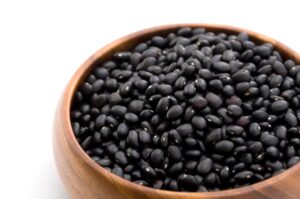
*We may earn a commission for purchases made using our links. Please see our disclosure to learn more.

